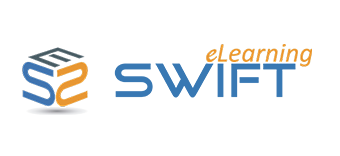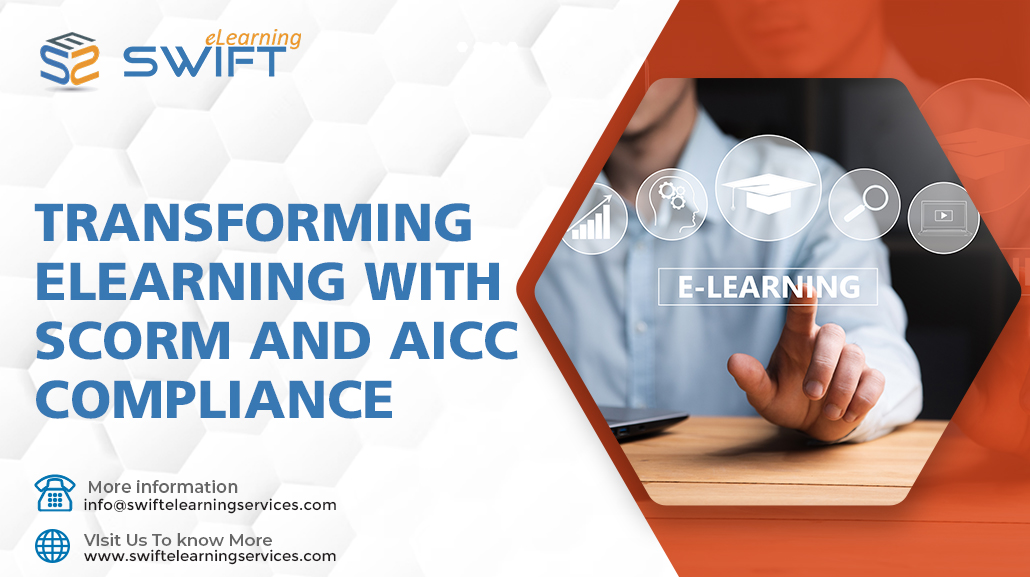Transforming eLearning with SCORM and AICC Compliance
Explore how SCORM and AICC compliance are revolutionizing eLearning. Discover how these standards enhance compatibility, tracking, and personalized learning experiences for learners worldwide.
Introduction
In the rapidly evolving landscape of education, eLearning has emerged as a revolutionary method of delivering knowledge and skills to learners across the globe. As technology continues to advance, so does the need for standardized methods to ensure seamless compatibility and interoperability between various eLearning platforms and content. This is where SCORM (Sharable Content Object Reference Model) and AICC (Aviation Industry CBT Committee) compliance come into play. In this blog, we will delve deep into the world of eLearning standards, exploring how SCORM and AICC compliance are transforming the eLearning landscape.
1. Understanding SCORM and AICC Compliance
Before we delve into the transformational impact of SCORM and AICC compliance on eLearning, it’s essential to understand what these terms mean.
SCORM (Sharable Content Object Reference Model)
SCORM is a set of technical standards for eLearning software products. It enables content authors to create eLearning materials that are compatible with different learning management systems (LMS) and can be shared across multiple platforms seamlessly. SCORM-compliant content is designed in a way that it can be easily reused, allowing organizations to reduce redundancy and improve efficiency.
AICC (Aviation Industry CBT Committee)
AICC is an older standard compared to SCORM but still holds significance in the eLearning industry. It was initially developed for the aviation industry but has been widely adopted for other sectors as well. AICC compliance ensures that eLearning content can be tracked and managed across various learning management systems. It focuses on communication between content and LMS, ensuring data exchange and proper reporting.
2. The Transformational Impact on eLearning
2.1 Interoperability and Compatibility
One of the most significant challenges in eLearning is the compatibility of content with different learning management systems.
SCORM and AICC compliance address this challenge by establishing standardized protocols for how eLearning content should be packaged and delivered. This ensures that content created using these standards can seamlessly run on various platforms without the need for extensive modifications or adjustments.
2.2 Reusable Content
SCORM and AICC compliance encourage the creation of reusable learning objects. These are self-contained modules of content that can be easily integrated into different courses and contexts. This reusability not only saves time and effort for content creators but also enhances the consistency of learning experiences. As a result, organizations can efficiently develop and update training materials while maintaining a consistent level of quality.
2.3 Tracking and Reporting
Both SCORM and AICC compliance emphasize detailed tracking and reporting of learner interactions with the content. This includes information about completion status, assessment scores, time spent on each section, and more. This data is crucial for instructors and organizations to evaluate the effectiveness of the content and the learning process. Improved tracking also enables personalized learning paths based on individual progress and performance.
2.4 Adaptive Learning
SCORM and AICC compliance provide the foundation for adaptive learning strategies. Adaptive learning involves tailoring the learning experience to the needs and abilities of individual learners. With detailed tracking data, instructors can identify areas where learners are struggling and adjust the content accordingly. This personalized approach maximizes the effectiveness of learning by focusing on each learner’s unique requirements.
2.5 Efficient Content Updates
In traditional education settings, updating learning materials can be a cumbersome process. SCORM and AICC compliance simplify this process by allowing content creators to update specific modules without affecting the entire course. Once the updated module is uploaded, it can be seamlessly integrated into different courses that use that module, saving time and ensuring consistency in the information presented.
2.6 Remote and Distributed Learning
The global shift towards remote and distributed learning has accelerated the need for standardized eLearning solutions. SCORM and AICC compliance enable educational institutions and organizations to provide consistent learning experiences to learners regardless of their location. This is particularly crucial in situations where learners are accessing content from different devices and locations.
2.7 Assessment and Certification
SCORM and AICC compliance facilitate accurate assessment and certification processes. Since these standards provide detailed tracking of learner interactions, it becomes easier to evaluate learners’ performance objectively. This is especially important for industries where certifications and compliance play a vital role, such as healthcare and finance.
3. Challenges and Future Directions
While SCORM and AICC compliance have indeed transformed the eLearning landscape, there are still some challenges and areas for improvement:
3.1 Mobile Learning
The rise of mobile devices as primary learning tools demands more flexible and responsive eLearning content. SCORM and AICC compliance need to evolve to ensure seamless compatibility with various mobile platforms and screen sizes.
3.2 Next-Generation Standards
As technology continues to advance, there is room for next-generation eLearning standards that leverage newer technologies like augmented reality (AR) and virtual reality (VR). These standards would need to address immersive learning experiences and interactions.
3.3 Data Security and Privacy
With the increased collection of learner data, ensuring data security and privacy has become crucial. Future eLearning standards should incorporate robust mechanisms for safeguarding learner information.
3.4 Personalized Learning
While SCORM and AICC compliance provide the groundwork for adaptive learning, there is still potential for more sophisticated personalized learning experiences driven by advanced algorithms and AI.
4. Conclusion
SCORM and AICC compliance have revolutionized the eLearning landscape by providing standardized protocols for creating, delivering, and tracking eLearning content. The interoperability, reusability, tracking capabilities, and adaptability offered by these standards have transformed how education is delivered and experienced.
As technology continues to advance, these standards will likely evolve to address new challenges and opportunities, ensuring that eLearning remains an effective and efficient method of knowledge dissemination in the digital age.
Frequently Asked Questions (FAQs)
What is SCORM compliance, and how does it impact eLearning?
SCORM (Sharable Content Object Reference Model) compliance is a set of technical standards that ensure eLearning content can seamlessly run on various learning management systems (LMS) without compatibility issues. It enhances content reusability, tracking, and consistency in learning experiences.
What is AICC compliance, and how does it differ from SCORM?
AICC (Aviation Industry CBT Committee) compliance is another eLearning standard focused on content-LMS communication and tracking. While it predates SCORM and is used for similar purposes, SCORM has gained wider adoption due to its comprehensive approach to content packaging and delivery.
How do SCORM and AICC compliance improve content reusability?
Both standards encourage the creation of reusable learning objects, which are modular content pieces. These objects can be easily integrated into various courses and contexts, saving time for content creators and ensuring consistent learning experiences.
How do SCORM and AICC compliance enhance tracking and reporting?
SCORM and AICC compliance enable detailed tracking of learner interactions with content. This includes completion status, assessment scores, time spent, and more. This data aids instructors in assessing content effectiveness and personalizing learning paths.
How do these standards contribute to adaptive learning?
Detailed tracking data from SCORM and AICC compliance enables adaptive learning strategies. Instructors can identify areas where learners struggle and adjust content accordingly, tailoring the learning experience to individual needs.
Can SCORM and AICC compliance simplify content updates?
Yes, both standards facilitate efficient content updates. Content creators can update specific modules without affecting entire courses. This updated module can then be seamlessly integrated into multiple courses that use it, ensuring consistency and saving time.








Leave a Reply
Want to join the discussion?Feel free to contribute!